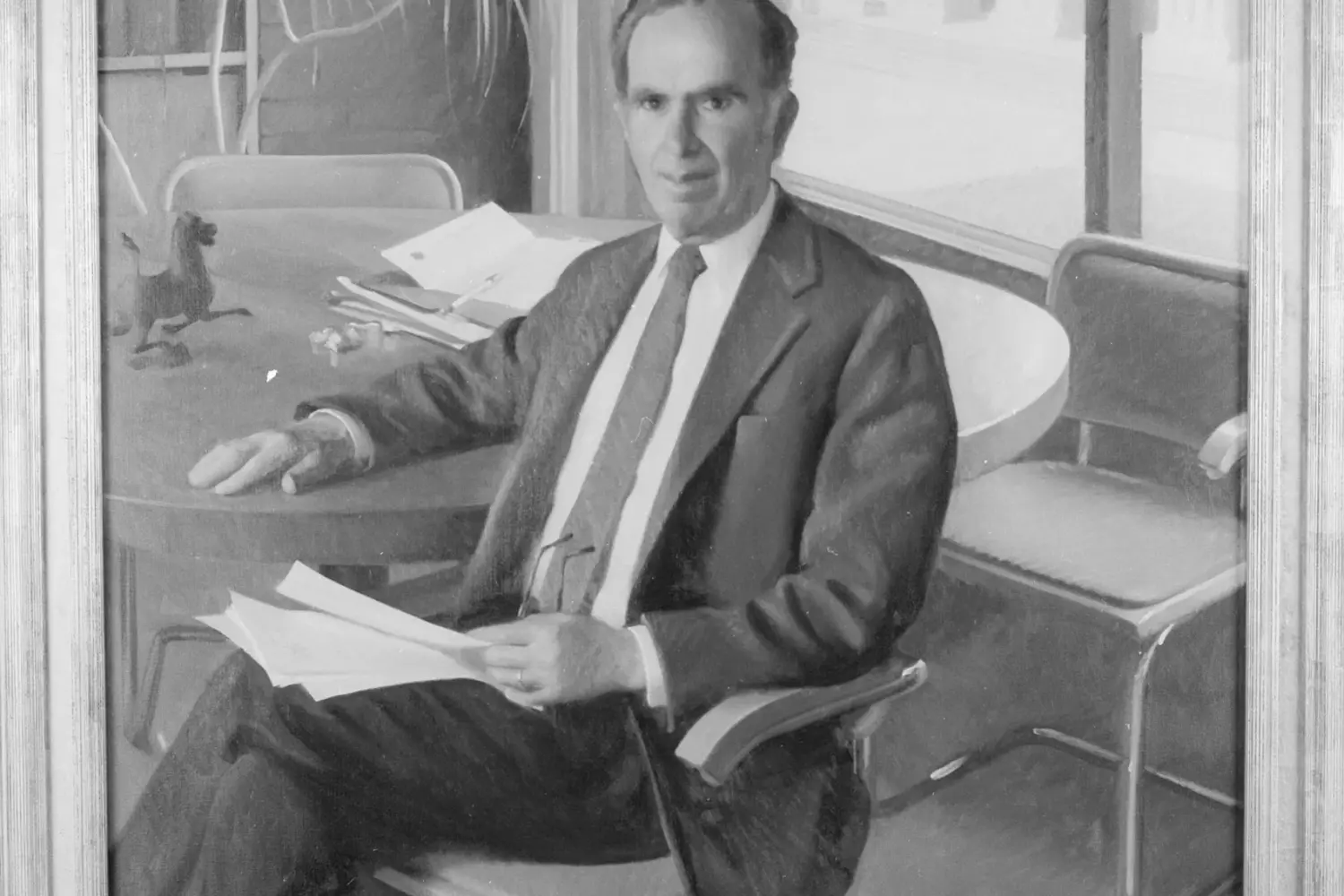Roscoe Pound Professor of Law James Vorenberg, 72, the ninth dean of Harvard Law School, former Watergate associate special prosecutor, and first chair of the Massachusetts State Ethics Commission, died on April 12, 2000, of cardiac arrest.
Vorenberg received an A.B. magna cum laude in 1948 from Harvard College and an LL.B. magna cum laude in 1951 from Harvard Law School, where he received the Sears Prize and served as president of the Harvard Law Review.
Vorenberg was commissioned a second lieutenant and served from 1951 to 1953 as a lawyer in the Air Force General Counsel’s Office. He then clerked for U.S. Supreme Court Justice Felix Frankfurter. In 1954 he began working for the Boston law firm Ropes & Gray, becoming a partner in 1960.
Vorenberg joined the Law School faculty as professor of law in 1962, teaching courses in criminal law as well as on the government lawyer and on the legal profession. He also helped establish and later directed the Center for Criminal Justice, a Ford Foundation-funded research center that brought police officers, prosecutors, and defense counsels to campus and took law students to observe the local police and jails.
At the request of then Attorney General Robert Kennedy, Vorenberg served as director of the Office of Criminal Justice in the U.S. Department of Justice from 1964 to 1965.
From 1965 to 1967, he served as the director of the President’s Commission on Law Enforcement and Administration of Justice, which resulted in the Federal Law Enforcement Assistance Program that distributed almost a billion dollars a year to state and local criminal justice agencies.
From 1973 to 1975, Vorenberg served as principal assistant to Professor Emeritus Archibald Cox ’37 in the Watergate Special Prosecutor’s Office, building and organizing the office and hiring the staff.
He was the first chairman of the Massachusetts State Ethics Commission from 1978 to 1983, enforcing the state’s conflict of interest laws.
He served as associate dean from 1977 to 1981 before becoming dean and Roscoe Pound Professor in 1981.
Under Vorenberg’s leadership, the numbers of full-time women faculty and minority faculty increased, and the student body also became more diverse. Vorenberg received Harvard University’s Association of Black Faculty, Administrators, and Fellows C. Clyde Ferguson Award in 1987 for his “contributions to enhancing diversity in the Harvard community.”
He authorized the expansion of the School’s Low Income Protection Plan, which made it the leading program in the country at the time for the forgiveness of loans for law school graduates performing law-related public service work.
Initiatives created or invigorated during his deanship include the Human Rights Program and the Program on the Legal Profession. He oversaw the expansion of the School’s Clinical Program. He also promoted the teaching of negotiation and mediation and played a major role in bringing criminal law studies more into the mainstream of the School’s teaching and research programs.
He also began the long-term planning process that led to the Campaign for Harvard Law School, which raised $183 million, at the time the largest amount ever raised by a law school.
After stepping down as dean, he taught courses at the School on criminal law, legal ethics, and criminal justice.
In October 1999, the School renamed the Langdell Hall North classroom in his honor.In October 1999, the School renamed the Langdell Hall North classroom in his honor.
His publications include Criminal Law and Procedure: Cases and Materials (West, 1995). He also coauthored Dean Cuisine, Or, the Liberated Man’s Guide to Fine Cooking with his friend Jack Greenberg of Columbia University.
A memorial service was held at Harvard University’s Memorial Church on May 10. Transcripts are available.
